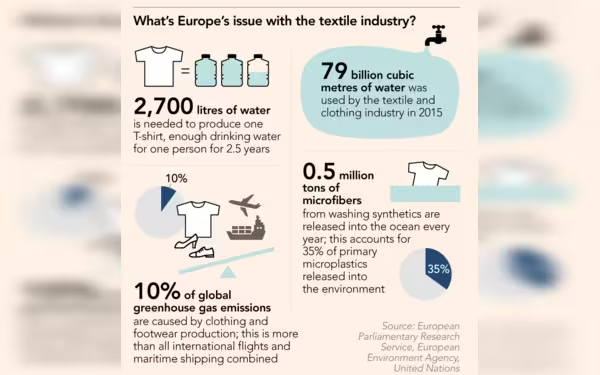Thursday, July 4, 2024 05:42 PM
Textile Industry Embraces Sustainable Practices with rPSF Innovation
- rPSF reduces reliance on virgin materials and combats environmental pollution.
- rPSF promotes a circular economy by upcycling post-consumer plastic waste.
- rPSF addresses key environmental concerns in the textile industry and meets consumer demands.
 Image Credits: TexSPACE Today
Image Credits: TexSPACE TodayThe textile industry is shifting towards sustainability with the adoption of recycled polyester staple fiber (rPSF), a champion of eco-friendly fashion. rPSF offers environmental benefits, upcycles plastic waste, and meets consumer demands for sustainable textiles.
The textile industry is undergoing a significant transformation towards sustainability, with a particular focus on eco-friendly practices. One of the key advancements in this shift is the adoption of recycled or alternative man-made fibers, such as recycled polyester staple fiber (rPSF), to reduce reliance on virgin materials and combat environmental pollution.
rPSF, derived from recycled PET chips, polyester waste, or post-consumer PET bottle flakes, offers a more environmentally friendly option for textile manufacturing compared to virgin polyester. Its recyclability, resource efficiency, and waste reduction properties make it a champion of eco-friendly fashion.
Not only does rPSF align with global sustainability regulations, but it also addresses key environmental concerns in the textile industry. By promoting a circular economy, rPSF upcycles post-consumer plastic waste, reduces energy and water consumption in production, mitigates climate change by lowering greenhouse gas emissions, and meets the growing consumer demand for sustainable products.
Despite its numerous benefits, challenges such as microplastic release into the ecosystem and limited recycling infrastructure in certain regions, like Pakistan, need to be addressed to maximize the potential of rPSF in the textile industry.
The emergence of recycled polyester staple fiber (rPSF) as a sustainable alternative in the textile industry signifies a positive step towards a greener future. With its environmental advantages, resource efficiency, and circular economy principles, rPSF is poised to play a crucial role in meeting consumer demands for eco-friendly textiles and complying with global sustainability initiatives.













